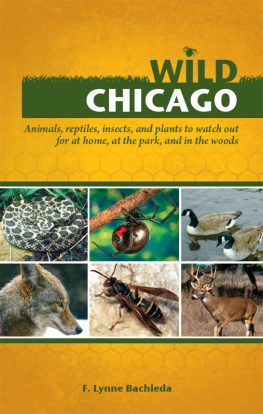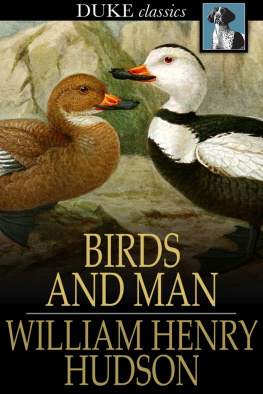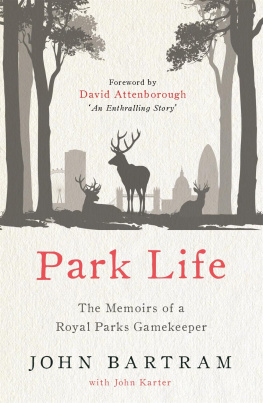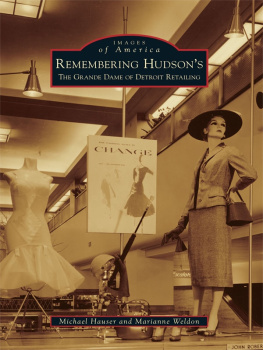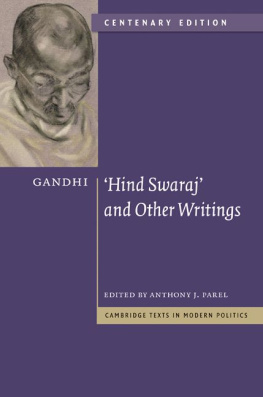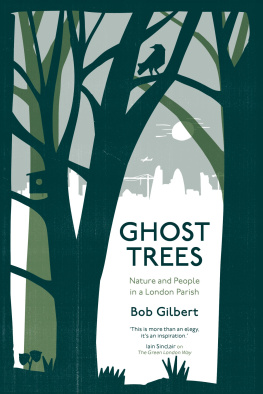W. H. Hudson - A hind in Richmond Park
Here you can read online W. H. Hudson - A hind in Richmond Park full text of the book (entire story) in english for free. Download pdf and epub, get meaning, cover and reviews about this ebook. year: 2011, publisher: Barnes & Noble, genre: Science. Description of the work, (preface) as well as reviews are available. Best literature library LitArk.com created for fans of good reading and offers a wide selection of genres:
Romance novel
Science fiction
Adventure
Detective
Science
History
Home and family
Prose
Art
Politics
Computer
Non-fiction
Religion
Business
Children
Humor
Choose a favorite category and find really read worthwhile books. Enjoy immersion in the world of imagination, feel the emotions of the characters or learn something new for yourself, make an fascinating discovery.
- Book:A hind in Richmond Park
- Author:
- Publisher:Barnes & Noble
- Genre:
- Year:2011
- Rating:3 / 5
- Favourites:Add to favourites
- Your mark:
- 60
- 1
- 2
- 3
- 4
- 5
A hind in Richmond Park: summary, description and annotation
We offer to read an annotation, description, summary or preface (depends on what the author of the book "A hind in Richmond Park" wrote himself). If you haven't found the necessary information about the book — write in the comments, we will try to find it.
The book is rich in anecdote, but richer in self-revelation. So wrote one reviewer about W. H. Hudsons A Hind in Richmond Park, one of his finest volumes of nature writing. Brimming with beauty and wisdom, Hudsons keen observations about plants, trees, insects, birds, and wild beasts continues to enthrall readers passionate about the natural world.
A hind in Richmond Park — read online for free the complete book (whole text) full work
Below is the text of the book, divided by pages. System saving the place of the last page read, allows you to conveniently read the book "A hind in Richmond Park" online for free, without having to search again every time where you left off. Put a bookmark, and you can go to the page where you finished reading at any time.
Font size:
Interval:
Bookmark:
W. H. HUDSON

This 2011 edition published by Barnes & Noble, Inc.
All rights reserved. No part of this publication may be reproduced, stored in a retrieval system, or transmitted, in any form or by any means, electronic, mechanical, photocopying, recording, or otherwise, without prior written permission from the publisher.
Barnes & Noble, Inc.
122 Fifth Avenue
New York, NY 10011
ISBN: 978-1-4114-3997-9
I
Richmond ParkRed deerAn adventure with a hind eating acornsWatching a listening hindSenses in dog and deer comparedSenses and instinct in wild and domestic animalsMan and beast comparedThe hind divides her listening sense in two partsThe trumpet ear and the ear trumpetStrange case of a deaf lady listening through an ear trumpet to a sermon.
OCCASIONALLY when in London I visit Richmond Park to refresh myself with its woods and waters abounding in wild life, and its wide stretches of grass and bracken. It is the bird life that attracts me most, for it is a varied one although so near to the metropolis, and there are here at least two of England's few remaining great birdsthe great crested grebe and the heron. The mammals are of less account, but I have met here with at least two adventures with the red deer which are worth recording. Stags are aloof and dignified, if not hostile in their manner, which prevents one from becoming intimate with them. When walking alone late on a misty October or November evening I listen to their roaring and restrain my curiosity. A strange and formidable sound! Is it a love-chant or a battle-cry? I give it up, and thinking of something easier to understand quietly pursue my way to the exit.
One afternoon in late summer I was walking with three ladies among the scattered oak trees near the Pen Ponds when we saw a hind, a big beautiful beast, rearing up in her efforts to reach the fully ripe acorns, and on my plucking a few and holding them out to her, she came readily to take them from my hand. She invariably took the acorn with a sudden violent jerk; not that she was alarmed or suspicious, but simply because it was the only way known to a hind to take an acorn from the branch to which it is attached with a very tough stem. To her mind the acorn had to be wrenched from me. My friends also gave her acorns, and she greedily devoured them all and still asked for more.
And while we were amusing ourselves in this way, two ladies accompanied by a little girl of about eight or nine came up and looked on with delight at our doings. Presently the little girl cried out, "Oh, mother, may I give it an acorn?" And the mother said "No." But I said, "Oh, yes, come along and take this one and hold it out to the deer." She took it from me gladly and held it out as directed. Then a sudden change came over the temper of the animal; instead of taking it readily she drew back, looking startled and angry; then slowly, as if suspiciously, approached the child and took the acorn, and almost at the same instant sprang clear over the child's head, and on coming down on the other side, struck violently out with her hind feet. One hoof grazed her cheek and dealt her a sharp blow on the shoulder. Then it trotted away, leaving the child screaming and sobbing with pain and fright.
For a few minutes I was amazed at this action of the hind, then I noticed for the first time that the child was wearing a bright red jacket. O unseeing fool that I am, exclaimed I to myself, not to have noticed that red jacket in time! I think my hurt was as great as that of the child, who recovered presently and was duly (and quite unnecessarily) warned by her mother to feed no more deer.
I have seen the effect of scarlet on various other animals, but never before on deer. It affects animals as a warning or a challenge, according to their disposition, and if they are of a fiery or savage temper, it is apt to put them in a rage.
In the other adventure with a hind there was no sensational or surprising element, but it interested me even more than the first.
Seeing a hind lying under an oak tree, chewing her cud, I drew quietly towards her and sat down at the roots of another tree about twenty yards from her. She was not disturbed at my approach, and as soon as I had settled quietly down the suspended vigorous cud-chewing was resumed, and her ears, which had risen up and then were thrown backwards, were directed forwards towards a wood about two hundred yards away. I was directly behind her, so that with her head in a horizontal position and the large ears above the eyes, she could not see me at all. She was not concerned about meshe was wholly occupied with the wood and the sounds that came to her from it, which my less acute hearing failed to catch, although the wind blew from the wood to us.
Undoubtedly the sounds she was listening to were important or interesting to her. On putting my binocular on her so as to bring her within a yard of my vision, I could see that there was a constant succession of small movements which told their talea sudden suspension of the cud-chewing, a stiffening of the forward-pointing ears, or a slight change in their direction; little tremors that passed over the whole body, alternately lifting and depressing the hairs of the backwhich all went to show that she was experiencing a continual succession of little thrills. And the sounds that caused them were no doubt just those which we may hear any summer day in any thick wood with an undergrowththe snapping of a twig, the rustle of leaves, the pink-pink of a startled chaffinch, the chuckle of a blackbird, or sharp little quivering alarm-notes of robin or wren, and twenty besides.
It was evident that the deer could not see anything except just what I sawthe close wood a couple of hundred yards away from us on the other side of a grassy expanse; nor did she require to see anything; she was living in and knew the exact meaning of each and every sound. She was like the dog as we are accustomed to see it in repose, sitting or lying down, with chin on paws, seemingly dozing, but awake in a world of its own, as we may note by the perpetual twitching of the nose. He is receiving a constant succession of messages, and albeit some are cryptic, they mostly tell him something he understands and takes a keen interest in. And they all come to him by one avenuethat of smell; for when we look closely at him we see that his eyes, often half-closed and blinking, have that appearance of blindness or of not seeing consciously which is familiar to us in a man whose sight is turned inwards, who is thinking and is so absorbed in his thoughts that the visible world becomes invisible to him. The dimmed eye in the reposing dog and the absent-minded philosopher is in both cases due to the fact that vision is not wanted for the time, and has been put aside. The resting, but wakeful, deer and dog differ only in this, that the first is living in a bath of vibrations, the other of emanations.
To return to our listening hind. The sounds that held her attention were inaudible to me, but I dare say that a primitive man or pure savage who had existed all his life in a state of nature in a woodland district would have been able to hear them, although not so well as the hind on account of the difference in the structure of the outer ear in the two species. But what significance could these same little woodland sounds have in the life of this creature in its present guarded, semi-domestic conditionthe condition in which the herd has existed for generations? It is nothing but a survivalthe perpetual alertness and acute senses of the wild animal, which are no longer necessary, but are still active and shining, not dimmed or rusted or obsolete as in our domestic cattle, which have been guarded by man since Neolithic times. But as I have seen on the Argentine pampas, these qualities and instincts, dormant for thousands of years, revive and recover their old power when cattle are allowed to run wild and have to protect themselves from their enemies.
Font size:
Interval:
Bookmark:
Similar books «A hind in Richmond Park»
Look at similar books to A hind in Richmond Park. We have selected literature similar in name and meaning in the hope of providing readers with more options to find new, interesting, not yet read works.
Discussion, reviews of the book A hind in Richmond Park and just readers' own opinions. Leave your comments, write what you think about the work, its meaning or the main characters. Specify what exactly you liked and what you didn't like, and why you think so.







